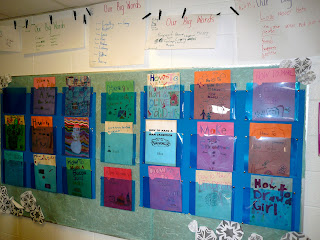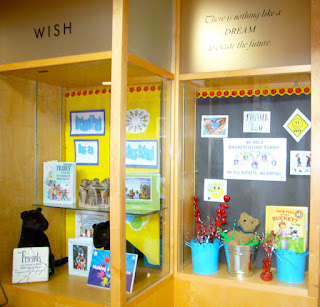Eye-opening Visits to Schools in Toronto
Schools visited
Toronto District School Board
Clinton Street Public School (Day care, kindergarten to Grade 6 and different programmes for students with SEN)
- Making the impossible possible – day-care centre, KG plus elementary education from Grades 1 – 6
- School where policy intentions are realized (PLC, DI, Ss involvement in AfL and AaL, diversified programmes, community involvement (esp parents),…)
- Principal considered it an ongoing learning process (despite the achievements made and the commendation received)
- Instructional leadership and professionalism exhibited by P, VP, Ts (special ed teacher and T guiding Grade 2 (?) Ss through setting success criteria for writing a personal letter
- Ts’ PD supported by a method and resource teacher, engaging Ts in sitting together and sharing, exchanging their practice and experience
- It’s school leaders’ job to provide Ts with opportunities for sharing and communicating through such arrangements such as release time, so that everyone is on a learning journey
- In professional sharing sessions through such mechanism as release time, Ts generally share and discuss their observations on student work, which is a powerful source of evidence of learning
- Diagnostic Reading Assessment identifying Ss’ level of reading to inform reading instruction and providing parents with assessment information
- Ss-centered educational services provided through a variety of programmes
- Ss like Cynthia, a Grade 4 student, enjoy school. They don’t find the province-wide assessment a source of pressure though it means a lot of work. There are no preparatory classes for such standardized assessments.
Halton District School Board



- Orchard Park Public School (Kindergarten to Grade 8)


- Lester B. Pearson High School (Grades 7 - 12)
- Chris Hadfield Public School (Kindergarten to Grade 8)

Eye-opening classroom visits
Mode of teaching
- Whole-class flexible grouping sharing
Mode of learning
Play/activity-based, students learning and collaborating in groups,
- Learner autonomy, emphasis on choice, teachers’ support for groups
 DI – variety of tasks, e.g word work, reading journal,
DI – variety of tasks, e.g word work, reading journal,  Making learning fun, manageable and visible
Making learning fun, manageable and visible- Student-centred lessons where ownership matters and collaborative learning is widely promoted
- Students’ active engagement in setting success criteria, e.g. those for composing a personal letter
Integrated education
- Multiple programmes, variety of resources, IEP
Valuing professional community development and autonomy
- Professionalism and instructional leadership demonstrated by David Euale, Board Director, Rob Eatough, District Superintendent, and principals such as Wendy Hughes and Libby Stephenson
- Province-wide effort to promote professional learning communities (PLC)
- Specialist attached to a school to support LAC and development of students' general and academic language proficiency
- Teachers’ direct engagement in curriculum development – role in drafting curriculum requirements, facilitating consensus building
Coherence of implementation strategies
- Shared focus: literacy, numeracy, well-being & safety and pathways
- Strong emphasis on capacity building, programme for which are well aligned, in terms of curriculum expectations and implementation strategies
- "The most important piece of PD is to have teachers sit together, share and exchange practices and experience. As school leader, it's important to provide opportunities for teachers to share and talk!" Wendy Hughes, Principal of Clinton Street Public School
- Seeing change as choice and a process
- Attention to the pace of, and the space required for, change
- e-Learning as a student-driven initiative with specific attempts made at identifying and meeting students' needs, promoted in small steps and with a sharp focus on meeting actual needs, supported by the Ontario Educational Resource Bank (OERB) with contributions from teachers
- School Support and Outreach Team (affiliated with EQAO), established to promote use of data generated from province-wide standardised assessments, support school improvement initiatives, identify and share success stories
- Alignment across different levels – province, board, school, teacher, class
Leaders' reflections
- NO perfect system, but improving with a clear sense of moral purpose
- "We are constantly improving as we develop a better understanding of what learning is." John Ryall and Paul Walsh, OMoE
- Curriculum fidelity is an issue
- Small incremental change – around 25% of teachers engaged in systematic PLC activites




































































No comments:
Post a Comment